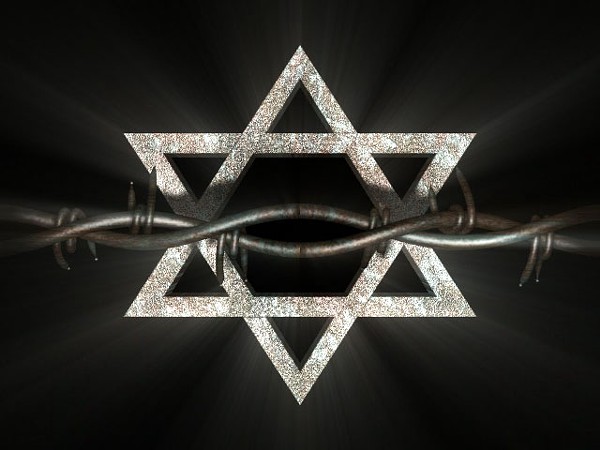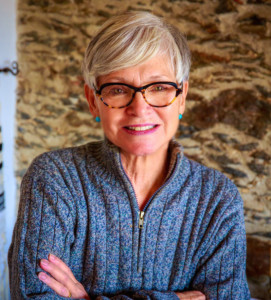The high school in the town was new and high tech, something one doesn’t often see in the “toe” of the Italian “boot,” in the region of Calabria where I live and the region which is the poorest in all of Italy. And the school administration was forward thinking as evidenced by the effort made to provide students and community members with an opportunity to observe Holocaust Memorial Day, Europe’s January counterpart to the springtime observance of Yom HaShoah.
As Calabria’s only rabbi I was an invited speaker. I took my place on the dais, along with a Catholic priest and a professor of Islamic studies. As a student guitarist strummed the final cords of John Lennon’s “Imagine,” I was asked to make my presentation, the theme of which was that our reason for gathering was to acknowledge the mechanized factory killing of Europe’s Jews, to remember those who were murdered and to honor those who survived. I shared the story of a dear friend, now passed on, who, after she witnessed the murder of her entire family, escaped from the Warsaw Ghetto and joined the Polish resistance.
When it came time for the professor to speak, he turned away from the audience and spoke directly to me. Pointing his finger for emphasis, the professor said, “This day is to remember all genocides, especially the killing of the Palestinian people by Israelis.” He went on to say that it wasn’t Jews that he blamed, “I like Jews, I just don’t like Zionists!” At that he turned to the audience of high school students, parents and recently arrived migrants, and engaging the refugee group, led them in a “Nakba” chant, an Arabic word that means “catastrophe,” – a word that refers to the establishment of the State of Israel.
In an article that appeared in the Jerusalem Post (Terra Incognita: The Holocaust: Between Dilution and Equivalence, 2016), journalist Seth J. Frantzman explores the phenomenon that what is unique about the Jewish Holocaust experience will soon be lost in the homogenous pool of similar worldwide tragedies.
Several years ago I might have disputed Frantzman’s claim. After my experience at the high school, I’ve changed my mind. Throughout the United States the Holocaust Memorial Day, Yom HaShoah, is observed by the majority of Jewish synagogues and organizations and often the larger faith and secular communities are invited to take part. Although I live in Italy, I receive dozens of announcements about these memorials and I’ve noticed that in recent years that Frantzman’s observation has come true.
In past years I have attended Holocaust Memorial events where Jewish lives are described as “lost,” and Jewish men, women and children “perished” or “were killed.” In recent years “murdered” is less and less the verb of choice. And just this year “Never Again” is now the cry of among survivors of mass murder, such as the school shootings in the US. Many of these survivors refer to the high school murders as a personal “Holocaust.”
As we approach Europe’s January 27 commemoration, I notice that there are Holocaust observances planned that include victims of Armenian and Rwandan genocide. Is this necessary, especially since the United Nationals General Assembly designated April 7 as the official International Day of Reflection on the 1994 genocide against the Tutsi in Rwanda and April 24 as Armenia Genocide Remembrance Day?
Last March 25 the world could have observed with Bengalis on Bengali Genocide Remembrance Day.
Or citizens worldwide could have stood in solidarity for the observance of Cambodian Genocide Remembrance Day that falls each year on May 20.
Each tragic genocide boasts its own day of remembrance, so why is it necessary to dilute Holocaust memorial observances with worldwide genocidal tragedies? Could this be a not so subtle ploy to diminish the unique character of the continent-wide extermination of the Jews?
Surely these tragedies are all worth remembering and there are important lessons to learn from each. So why is it crucial that we not diminish the memory of the Holocaust?
In 2015, on the 70th anniversary of the liberation of the Auschwitz death camp 300 camp survivors attended the ceremony, most of whom were more than 80 or 90 years old. When the 75th commemoration was held in 2020, very few survivors were still living and many of those were too fragile to travel.
As we lose the testimony of our eye witnesses who experienced Nazi horrors first hand, we Jews must consider how we will maintain our memorial ceremonies. Will we seek out child survivors, such as those who were hidden or those who escaped via the Kindertransport? Will we validate childhood memories and consider child survivors as “real” Holocaust survivors? Will we listen to the children and grandchildren of camp survivors whose lives are forever affected by horrors experienced by their parents and grandparents? Will we adamantly work to maintain the unique tragedy that is the Holocaust or will we take the path of least resistance and homogenize the Jewish Holocaust experience with that of other worldwide horrors?
As journalist Seth Frantzman warns, “In recent years there has been a tendency to revise the history of the Holocaust. In the West this takes the form of universalizing it and diluting its meaning.”
My experience here in Italy tells me that Holocaust dilution, well-meaning though it may be, will diminish the Jewish Holocaust experience, marginalize survivors and their families, and eventually abbreviate the testimony of the one-of-a- kind, unique and unfathomable horror visited upon six million European Jews.

